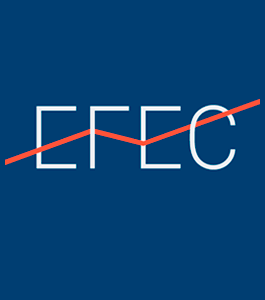19/05/2015 - Com podem utilitzar les noves tecnologies per fomentar l’educació financera? Jason Alderman, Vice-president de VISA, Inc., repassa per al blog d’educació financera huffingtonpost, com el desenvolupament i implantació de jocs i aplicacions pels nostres smartphones que fomentin l’educació financera estan resultant molt fructíferes per a aquest col·lectiu recentment batejat com Millennials (joves nascuts entre el 1980 i el 2000); pels quals aquestes tecnologies són ja una part més de la seva vida.
Aplicacions per a la nostre educació financera
The global growth of handheld digital devices among younger people is transforming the way consumers are getting their information in general, and financial information in particular.
On April 15, the 2015 Financial Literacy Summit, co-hosted by Visa Inc. and the Federal Reserve Bank of Chicago, brought together senior international financial literacy experts to discuss how mobile technology can improve financial literacy for today’s young adults.
“Millennials” refers to the demographic born between 1980 and 2000, representing the largest group of individuals using mobile banking applications. At 18 percent, millennials are also the biggest cohort partaking in Internet browsing, emailing, searching, social networking and news consumption on a smartphone or tablet. By comparison, only 5 percent of 35- to 54-year-olds and 3 percent of those 55 years and older are using mobile devices exclusively.
Amando M. Tetangco Jr., the governor of Bangko Sentral ng Pilipinas, the central bank of the Philippines, told the audience that young Filipino adults are “struggling more than their older counterpart groups with regard to budgeting” and retirement planning, but he said he is still optimistic: “I believe there are certain characteristics of millenials that provide opportunities to build [their financial capabilities]. They have a desire for change.” Such change, he said, should be driven by data, and policy should be made personal and tied to technology solutions embraced by younger citizens.
“I believe there are certain characteristics of millenials that provide opportunities to build [their financial capabilities]. They have a desire for change.”
Tetangco’s thoughts were expanded by co-panelists Steven Ciobo, an Australian MP and Parliamentary Secretary to the Minister for Foreign Affairs and to the Minister for Trade and Investment, and Georgette Jean-Louis, the executive board member of Banque de la Republique d’Haiti, who indicated that half of her country’s population is under age 21, facing “revenue inequality” and persistent differences in financial literacy that call for better and earlier financial education.
That’s why handheld technology holds so much promise in the youth struggle for financial literacy, according to technology experts on another panel discussion during the Summit.
“Eighty to 90 percent of U.S. teens have smart devices. That’s huge, but the important thing to understand is that these aren’t just things they use. They’re a way of life,” said Jason Young, the CEO and co-founder of MindBlown Labs, an Oakland, California-based app development company behind Thrive ‘n’ Shine, a personal finance game aimed at teens and young adults.
Young pointed out that 97 percent of millennials play online games, “most of them on mobile devices.” He described such games as “a very easy way to communicate a new set of facts” and a way to potentially track and reshape real financial behavior. Young also suggested that financial literacy apps have another important advantage: eliminating the fear that so many feel about discussing financial issues. “There’s a stigma and shame to not knowing things. Games remove that.”
“Eighty to 90 percent of U.S. teens have smart devices. That’s huge, but the important thing to understand is that these aren’t just things they use. They’re a way of life,”
Yet Jake Schwartz, the CEO and co-founder of General Assembly, a New York-based online education community training students in technology, business and design, suggested that financial literacy success will need to go beyond technology toward a better understanding of millennials and their unique financial challenges.
“When it comes to [financial literacy], we really need to think about the context of this generation’s financial lives,” said Schwartz, who described millennials as an “entirely disillusioned, cynical, exploited group of people” after the recent recession. Many, he said, face “a massive pile of student debt [and] are struggling to find a way to earn their economic way through the world.”
(…)
Llegueix l’article complet a: huffingtonpost.com
LEE TAMBIÉN: Bill Clinton “A l’escola no ensenyen a gestionar els diners”


